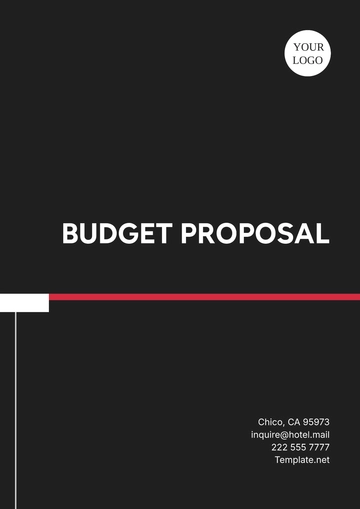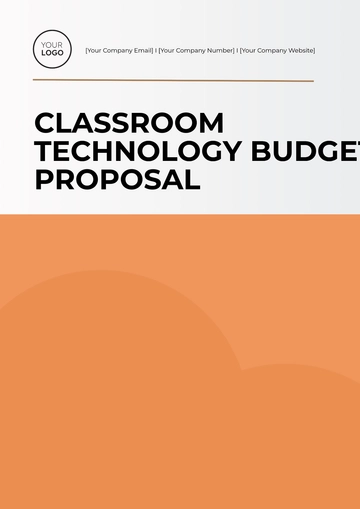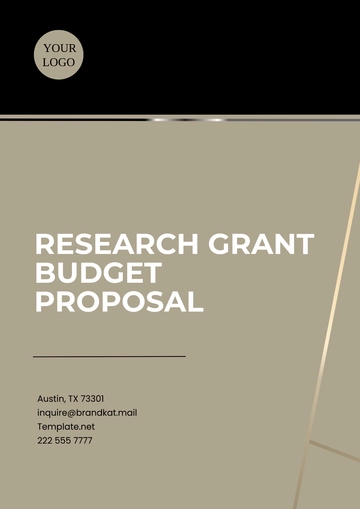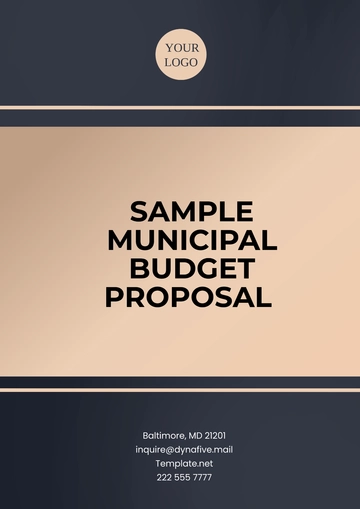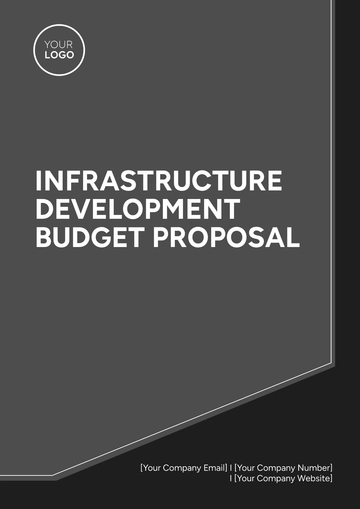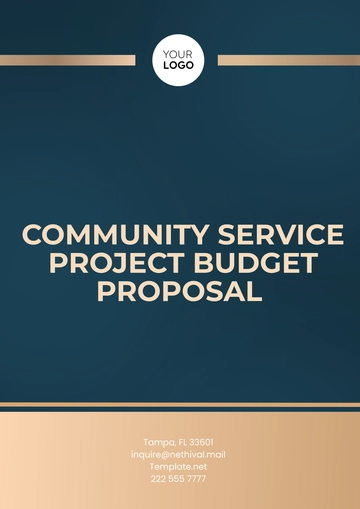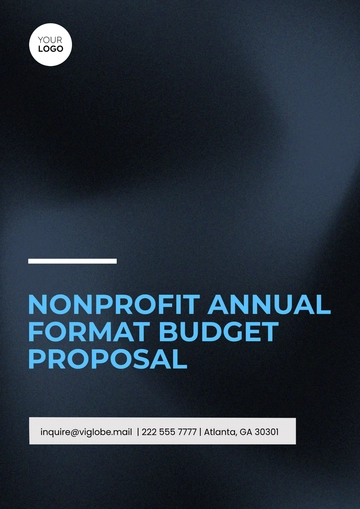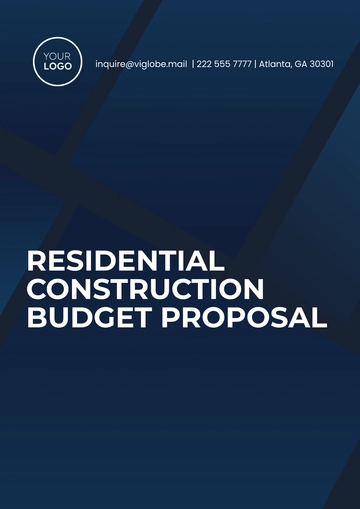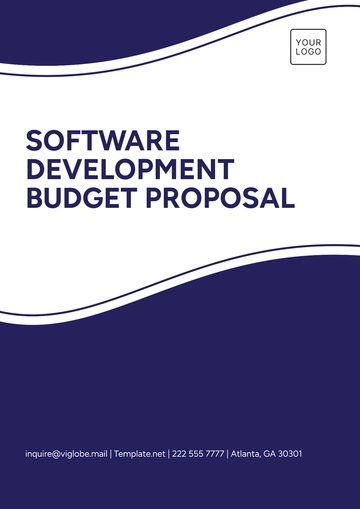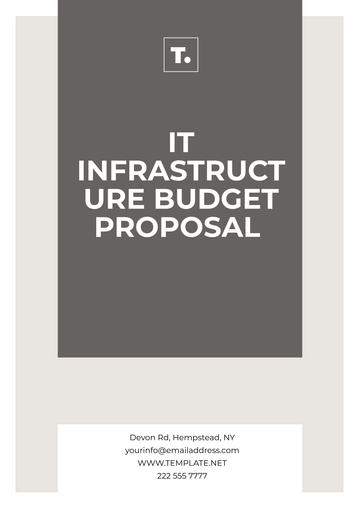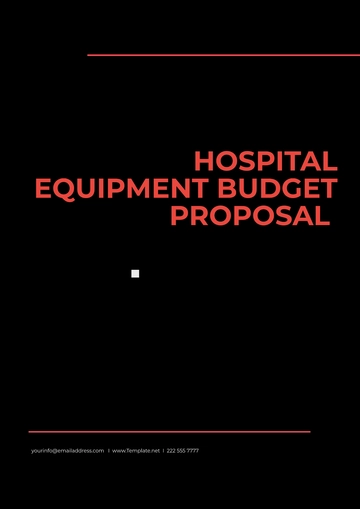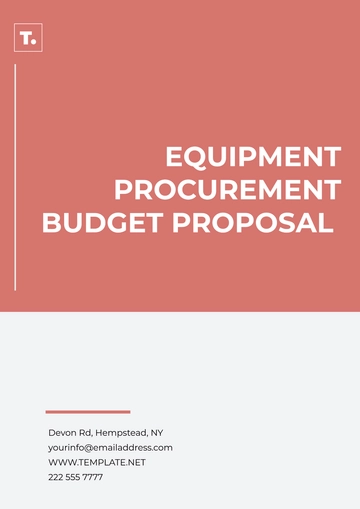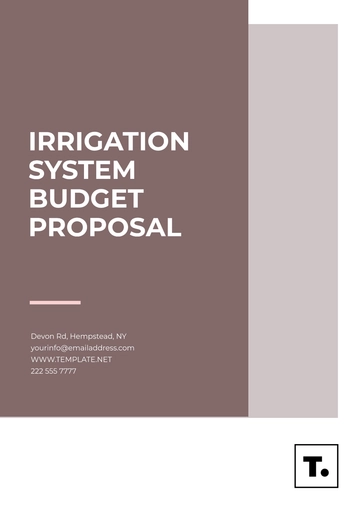Free MBA Budget Proposal

I. MBA Students
A. Coursework Requirements
Students pursuing a Master of Business Administration degree frequently undertake the task of drafting budget proposals, which forms an integral component of their academic coursework in fields such as finance, management, or strategic planning. In crafting these proposals, students are generally expected to utilize the budgeting principles and techniques they have learned throughout their classes. These exercises are applied to real-world or hypothetical business scenarios, allowing students to simulate practical applications of their theoretical knowledge.
Through the process of developing these proposals, students acquire significant hands-on experience in the areas of financial forecasting, cost estimation, and resource allocation. These are crucial skills that play a vital role in the business world.
B. Group Projects
In the context of group projects, students have the opportunity to work together, pooling their individual strengths and knowledge to create detailed budget proposals tailored to either hypothetical or actual business scenarios. This process of collaboration is designed to significantly improve their abilities in teamwork and communication, as students must efficiently share ideas, negotiate roles, and merge differing perspectives. In addition to improving essential skills, this collaboration exposes students to diverse financial management perspectives, broadening their understanding and appreciation of the field.
When students come together to combine their individual knowledge and skills, they are able to develop proposals that are much more robust. These proposals not only demonstrate a thorough understanding of the limitations imposed by budgetary constraints but also highlight opportunities for effective financial management. Through this collaborative effort, the collective expertise of the students results in proposals that are both comprehensive and insightful.
C. Capstone Projects
Many MBA programs require students to complete capstone projects that often involve creating detailed budget proposals for specific initiatives or business plans. These projects synthesize knowledge from various courses and provide an opportunity for students to demonstrate their analytical and strategic thinking abilities.
In addition to its other benefits, undertaking a capstone project can offer students significant networking opportunities; this occurs as they have the chance to present their proposals to professionals who are well-established in the industry.
II. Business Analysts
A. Cost Analysis
Business analysts are responsible for creating comprehensive budget proposals to facilitate in-depth cost analyses for various projects or initiatives. In this capacity, they meticulously assess both fixed costs, which remain constant regardless of the level of goods or services produced, and variable costs, which fluctuate with the production output. Their goal is to pinpoint specific areas where expenses can be curtailed without sacrificing the quality or integrity of the project.
By conducting this detailed and methodical analysis, business analysts provide stakeholders with a clearer understanding of the financial ramifications associated with different components of a project. This, in turn, equips stakeholders with the necessary information to make more informed and strategic decisions regarding the project’s execution and resource allocation.
B. Forecasting
These highly trained and knowledgeable professionals draw upon a comprehensive collection of historical data together with current market trends to make educated predictions about future costs and revenue streams. Through this analytical process, they are able to craft detailed and accurate budget proposals that are precisely aligned with the strategic goals and objectives of the organization.
By employing advanced analytical tools and methods, business analysts are able to deliver valuable insights into potential variations in costs, which enables the formulation of proactive budgeting strategies. This capability to forecast is essential for pinpointing financial risks and opportunities that could influence the feasibility and success of projects.
C. Stakeholder Communication
Business analysts frequently serve as intermediaries among various stakeholders, playing a crucial role in the process of ensuring that budget proposals align with the diverse needs and expectations of different departments within an organization. Their responsibilities include facilitating discussions and dialogues to collect and integrate input from a wide range of stakeholders, thereby assisting in reconciling and balancing competing priorities and interests among them.
The ability to communicate effectively is fundamental for these analysts, as it is essential for building a consensus among the parties involved and ensuring that the budget proposal is not only well-received but also thoroughly understood by everyone participating in the process.
III. Project Managers
A. Project Funding Requests
Project managers are responsible for creating comprehensive budget proposals in an effort to secure the necessary funding for particular projects. This process involves detailing the various resources that are required to successfully achieve the project's objectives. As part of their role, project managers must effectively articulate the value proposition of the project, demonstrating in clear terms how the suggested budget will contribute significantly to the overall success of the project as well as the broader organizational goals. This complex process frequently requires project managers to justify the proposed expenses to upper management, ensuring that the budget proposal aligns closely with the strategic priorities and vision of the organization.
B. Resource Allocation
Project managers concentrate on the effective distribution and utilization of resources, ensuring that the financial plan is in harmony with the project timeline and the expected deliverables. These professionals evaluate the abilities and capacities of individual team members, carefully balancing their workloads to optimize productivity. By developing a comprehensive resource plan, they can aid in averting any project delays and make certain that all essential resources are accessible at the required times.
C. Risk Management
Project managers incorporate risk assessments into their budget proposals, outlining potential financial risks and contingency plans to mitigate them. By identifying risks upfront, they can allocate funds for risk management strategies, such as insurance or additional resources. This proactive approach not only enhances the robustness of the budget proposal but also instills confidence in stakeholders regarding the project's feasibility.
IV. Financial Managers
A. Financial Planning
Financial managers have the responsibility of assembling comprehensive budget proposals as an integral aspect of their financial planning duties. This task involves ensuring that the proposed budgets are in harmony with the overarching financial strategy of the organization. To achieve this, financial managers engage in the thorough analysis of historical financial data along with current market conditions. By combining these insights, they can create budget forecasts that are both realistic and informed. This careful alignment of budget proposals with the strategic goals of the organization is crucial, as it helps to ensure the long-term sustainability and the potential for growth within the organization.
B. Compliance and Reporting
Financial managers are responsible for ensuring that budget proposals adhere to the necessary regulatory requirements and align with internal policies. They are tasked with delivering accurate and thorough reporting to stakeholders, which is essential for maintaining transparency and accountability within the organization. To effectively fulfill these duties, financial managers must keep themselves informed about any updates or changes in regulations and accounting standards. Staying current with this information is vital to avoiding issues of non-compliance. Their role in maintaining transparency and accountability plays an integral part in establishing and sustaining trust among stakeholders, ultimately contributing to the overall integrity and reliability of the organization's financial practices.
C. Budget Monitoring
Financial managers hold the crucial responsibility of overseeing the performance of organizational budgets and implementing necessary adjustments to ensure financial stability and efficiency. This responsibility often becomes evident in the detailed proposals they draft, which outline budgetary expectations and plans. To effectively carry out this role, financial managers utilize advanced financial software and a variety of reporting tools to meticulously track both expenditures and revenues. This technology grants them the ability to gain real-time insights into how the budget is performing. By constantly monitoring these financial metrics, financial managers are able to identify any discrepancies or variances from what was initially proposed in the budget. This vigilant oversight allows them to take timely corrective actions, ensuring that the organization remains financially on track and aligned with its strategic objectives.
V. Entrepreneurs
A. Startup Funding
Entrepreneurs frequently develop comprehensive budget proposals in order to detail and explain their financial requirements when they are in the process of seeking investments or loans to support their startup ventures. These budget proposals are essential documents that must meticulously and clearly convey how the requested funds are intended to be used. This includes a detailed breakdown of the various startup costs incurred at the initial phase, an outline of ongoing operational expenses necessary to sustain the business, and a projection of anticipated revenue streams to reassure potential investors or lenders of the financial viability and future profitability of the startup.
Crafting a thoroughly researched and well-prepared budget proposal can dramatically improve an entrepreneur's prospects of securing the necessary financing, as it demonstrates careful planning, financial awareness, and a clear understanding of the business's economic needs and potential growth trajectory.
B. Business Planning
Budget proposals help entrepreneurs articulate their business plans, demonstrating how funds will be utilized to achieve growth and profitability. They provide a roadmap for financial management, detailing short-term and long-term financial strategies. By aligning the budget with business objectives, entrepreneurs can better communicate their vision to potential investors and partners.
C. Risk Assessment
They include risk assessments to show potential investors that they have considered various financial scenarios and how they plan to mitigate risks. This assessment often involves identifying key assumptions underlying the budget and discussing strategies to address potential challenges. By demonstrating a proactive approach to risk management, entrepreneurs can instill confidence in their stakeholders regarding the viability of their business plans.
VI. Project Timeline
A. Key Milestones
Milestone | Target Date | Status | Responsible Party |
|---|---|---|---|
Project Initiation | [Date] | Completed | Project Manager |
Completion of Market Research | [Date] | In Progress | Research Team |
Development of Budget Proposal | [Date] | Pending | Business Analysts |
Stakeholder Review | [Date] | Pending | Project Manager |
Final Approval | [Date] | Upcoming | Executive Committee |
These specific milestones function as important checkpoints, providing assurance that the overall project is moving forward in alignment with the original plan. Additionally, they enable stakeholders to systematically monitor and evaluate the progress of the project at crucial stages.
B. Detailed Schedule
The detailed schedule below outlines each project phase, along with key dates and task owners:
Dates | Description |
|---|---|
[Date] | Project Initiation: Conducted initial team meetings to align goals, establish roles, and finalize project scope. Responsible Party: Project Manager. |
[Date] - [Date] | Market Research Completion: The Research Team gathers data on industry trends, customer demands, and competitor benchmarks. This stage provides a foundation for an informed budget proposal. |
[Date] - [Date] | Budget Proposal Development: Business Analysts prepare the detailed budget proposal, including cost estimates and forecasting for stakeholder review. |
[Date] | Stakeholder Review: Project Manager conducts a formal review with stakeholders, incorporating feedback and adjustments as necessary. |
[Date] | Final Approval: Executive Committee assesses the final budget proposal for approval, ensuring alignment with strategic goals. |
C. Dependencies and Risks
The interconnections and dependencies among various tasks are meticulously observed and managed to prevent any potential setbacks or delays in the project timeline. For example, the market research activity must be finalized before the development of the budget proposal can proceed effectively. This step is crucial as the insights from the market research inform the budgetary decisions and allocations.
Additionally, potential risks, including possible delays in accessing necessary data or unforeseen changes in the market environment, have been carefully identified. To address these risks, contingency plans have been formulated and are ready to be implemented, ensuring that any disruptions to the planned schedule are minimized and the project can continue smoothly.
VII. Evaluation and Measurement
A. Key Performance Indicators (KPIs)
The following KPIs have been identified to measure project success:
Return on Investment (ROI): Targeted at a 15% ROI within the first year of implementation.
Project Completion Rate: Target of 100% completion within scheduled timelines.
Stakeholder Satisfaction: Target satisfaction rating of 90% as measured by post-project surveys.
B. Methods of Assessment
Surveys: Stakeholder surveys will be conducted at the end of each project phase to gather feedback on project processes and outcomes.
Financial Analysis: Monthly financial reviews will compare actual expenditures against the budget to ensure financial targets are met.
Performance Reviews: Quarterly team performance evaluations will assess productivity and adherence to project goals.
C. Reporting and Feedback Mechanisms
Regular progress reports will be distributed to stakeholders bi-weekly, summarizing key developments and any changes to budget forecasts. Feedback sessions will also be scheduled to address any concerns or suggestions, fostering transparency and collaboration.
VIII. Conclusion
A. Recap of Key Points
This budget proposal has outlined the project objectives, financial requirements, and anticipated benefits for our organization. Key milestones and a comprehensive schedule ensure that we will reach our goals on time and within budget. We have also identified KPIs to track success and implemented assessment methods to maintain alignment with our strategic objectives.
B. Call to Action
We invite stakeholders to review this proposal and consider approving the budget request to facilitate project initiation. Please feel free to reach out with questions or suggestions; we are prepared to discuss any aspect of the proposal further. Approval of this budget will set the stage for achieving significant growth and advancing our organizational goals.
- 100% Customizable, free editor
- Access 1 Million+ Templates, photo’s & graphics
- Download or share as a template
- Click and replace photos, graphics, text, backgrounds
- Resize, crop, AI write & more
- Access advanced editor
Utilize the MBA Budget Proposal Template from Template.net to streamline your financial planning process. This editable and customizable template empowers you to create a professional budget proposal tailored to your specific needs. With our AI Editor Tool, effortlessly adjust sections and ensure your proposal aligns perfectly with your objectives, making funding requests clear and compelling.
You may also like
- Business Proposal
- Research Proposal
- Proposal Request
- Project Proposal
- Grant Proposal
- Photography Proposal
- Job Proposal
- Budget Proposal
- Marketing Proposal
- Branding Proposal
- Advertising Proposal
- Sales Proposal
- Startup Proposal
- Event Proposal
- Creative Proposal
- Restaurant Proposal
- Blank Proposal
- One Page Proposal
- Proposal Report
- IT Proposal
- Non Profit Proposal
- Training Proposal
- Construction Proposal
- School Proposal
- Cleaning Proposal
- Contract Proposal
- HR Proposal
- Travel Agency Proposal
- Small Business Proposal
- Investment Proposal
- Bid Proposal
- Retail Business Proposal
- Sponsorship Proposal
- Academic Proposal
- Partnership Proposal
- Work Proposal
- Agency Proposal
- University Proposal
- Accounting Proposal
- Real Estate Proposal
- Hotel Proposal
- Product Proposal
- Advertising Agency Proposal
- Development Proposal
- Loan Proposal
- Website Proposal
- Nursing Home Proposal
- Financial Proposal
- Salon Proposal
- Freelancer Proposal
- Funding Proposal
- Work from Home Proposal
- Company Proposal
- Consulting Proposal
- Educational Proposal
- Construction Bid Proposal
- Interior Design Proposal
- New Product Proposal
- Sports Proposal
- Corporate Proposal
- Food Proposal
- Property Proposal
- Maintenance Proposal
- Purchase Proposal
- Rental Proposal
- Recruitment Proposal
- Social Media Proposal
- Travel Proposal
- Trip Proposal
- Software Proposal
- Conference Proposal
- Graphic Design Proposal
- Law Firm Proposal
- Medical Proposal
- Music Proposal
- Pricing Proposal
- SEO Proposal
- Strategy Proposal
- Technical Proposal
- Coaching Proposal
- Ecommerce Proposal
- Fundraising Proposal
- Landscaping Proposal
- Charity Proposal
- Contractor Proposal
- Exhibition Proposal
- Art Proposal
- Mobile Proposal
- Equipment Proposal
- Student Proposal
- Engineering Proposal
- Business Proposal
